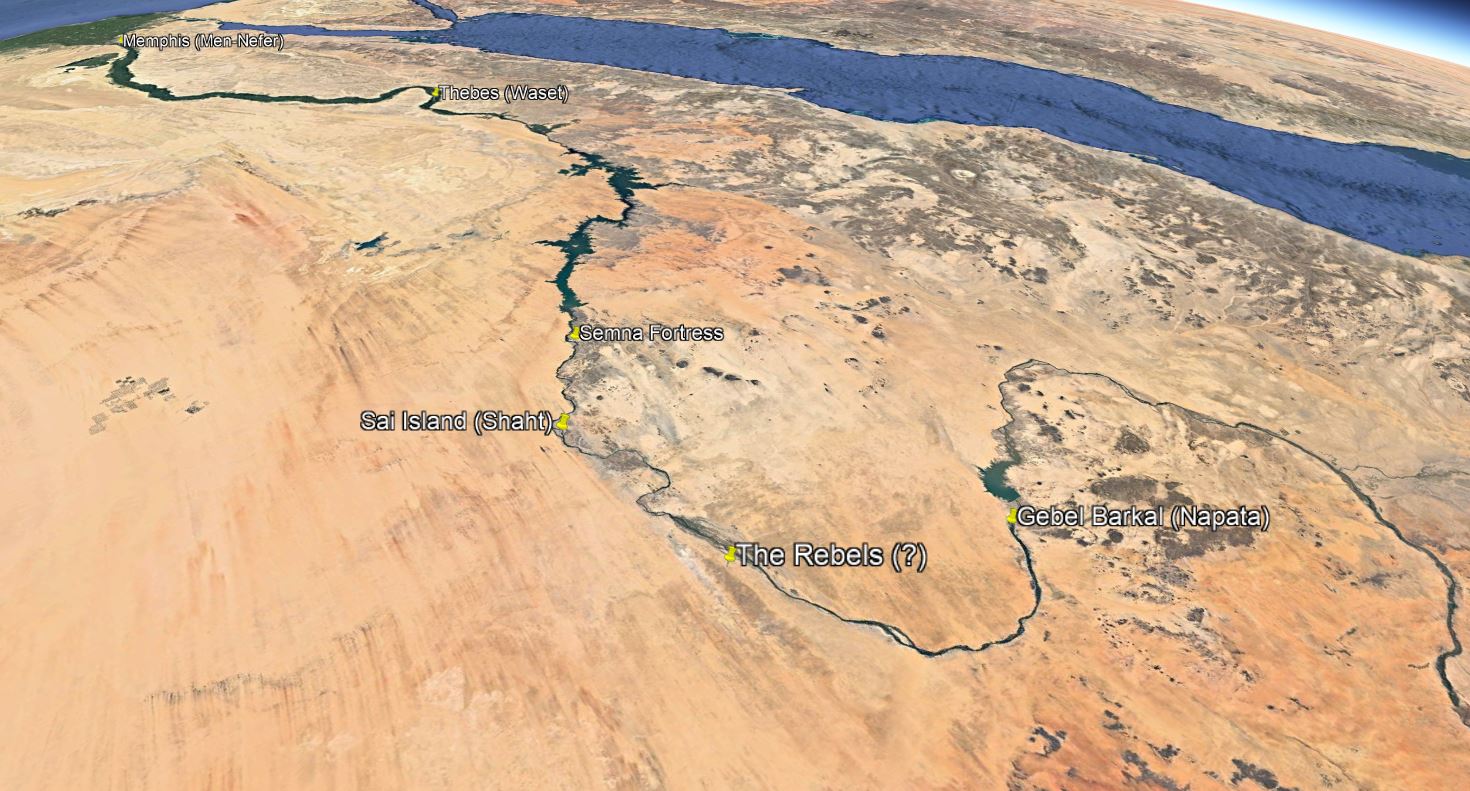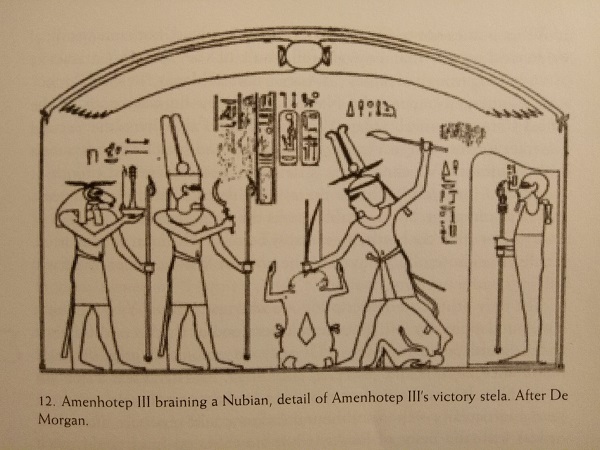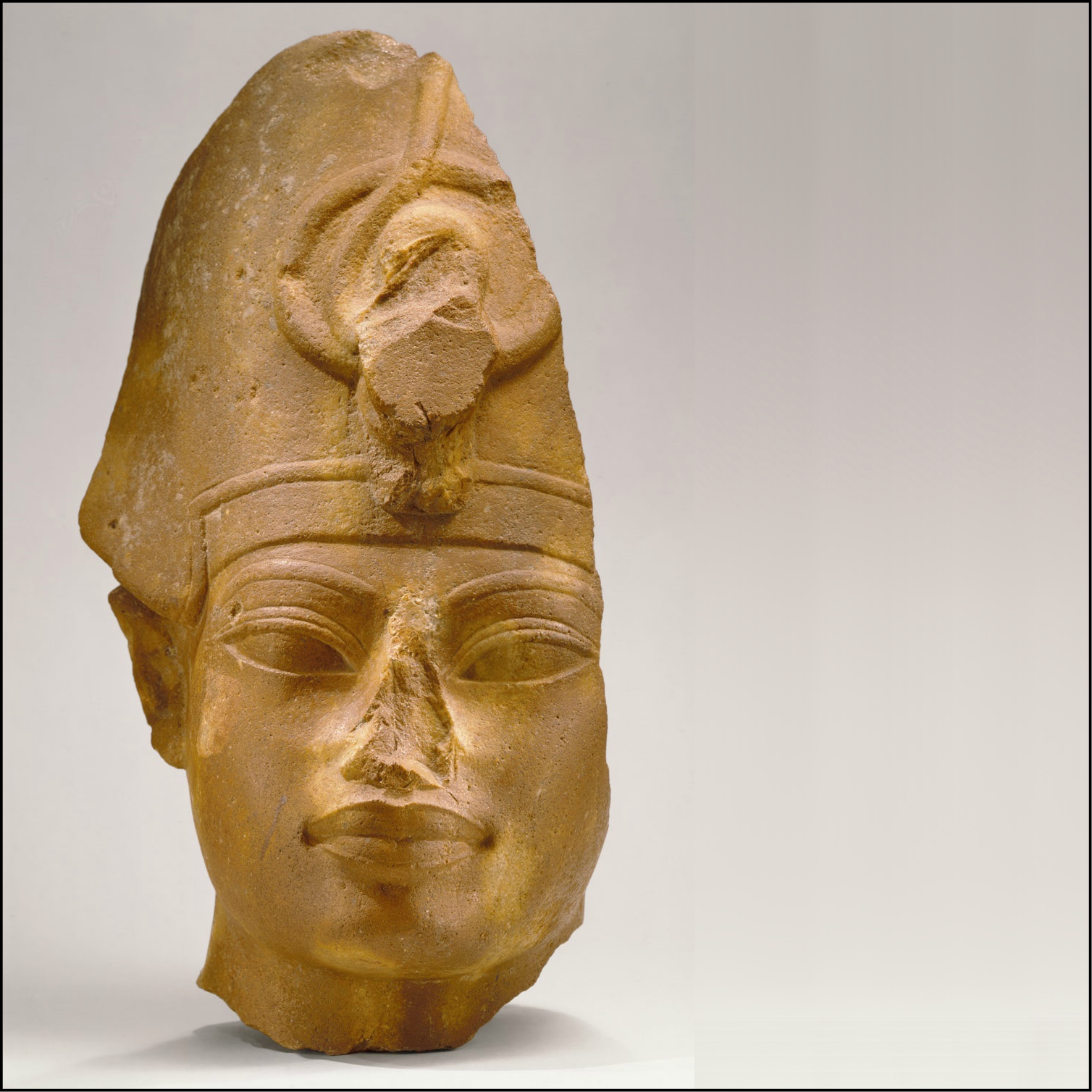Amunhotep III (Part 4): The Nubian War.
In late 1397 BCE, Amunhotep III received word of a rebellion in Nubia. A local chieftain, Ikheny, had gathered warriors and risen up in revolt. The pharaoh, just seventeen years old, was eager for a chance to prove himself. He gathered his warriors, and invaded Nubia…


The major locations of the war (Higher Resolution)

Amunhotep III executing Nubian prisoners after the battle. Amun and Khonsu (left) and Ptah Ta-Tenen (right) watch. Between the King’s feet, a defeated Nubian (Ikheny?) lies helpless (Kozloff, 2012).

Amunhotep III in portrait, wearing the Blue Crown, from Memphis (Metropolitan Museum of Art).
Bibliography
Charles Bonnet, “Upper Nubia from 3000 to 1000 BC,” in W.V. Davies (editor), Egypt and Africa: Nubia from Prehistory to Islam, 1991.
John C. Darnell and Colleen Manassa, Tutankhamun’s Armies: Battle and Conquest During Ancient Egypt’s Late Eighteenth Dynasty, 2007.
P.L. Shinnie, “Trade Routes of the Ancient Sudan 3,000 BC – AD 350,” in W.V. Davies (editor), Egypt and Africa: Nubia from Prehistory to Islam, 1991.
Aidan Dodson, Amarna Sunrise, 2012.
Arielle P. Kozloff, Amenhotep III: Egypt’s Radiant Pharaoh, 2012.
Stuart Tyson Smith, Wretched Kush: Ethnic Identities and Boundaries in Egypt’s Nubian Empire, 2003.
Anthony J. Spalinger, War in Ancient Egypt, 2005.
Lazlo Török, Between Two Worlds: The Frontier Region between Ancient Nubia and Egypt 3700 BC – 500 AD, 2008.





The kings of Egypts obsession with gloating and detailing every time they “win a fight” as a world superpower against random tribes in revolt in their territory is a little bit pathetic tbh
Like sure, I get the purpose is to reinforce the fact that their power can’t be challenged so don’t you even think about trying, but like, come on.
The whole tribe you’re fighting with your empire is 30,000 people and they won’t be fielding anything like that on a battlefield, they have no chariots, this is more a slaughter than a battle.
Regarding the decision to not deport the tribe that makes sense imo, this whole campaign seems very short in terms of being a couple weeks, going out into the countryside (as I can’t imagine the whole community showed up to fight) to ethnically cleanse the entire population would probably not be worth it, their labour is subject to the crown either way.
As for the reason they chose to rebel, I think as you say in this episode, even if you can’t win, resisting imperial oppression is a noble cause, I think of the rebellions of the New Caledonians against France in the 19th century, they could never win, but what alternative is there? With resisting there’s a 1% chance the empire won’t bother to deal with you, or some miraculous reversal befalls them, without resisting the chance is 0%.
Truthfully I await the day in this podcast in a few centuries where the Egyptian empire collapses with much anticipation. Its an unpleasant business.
“Give me a girl tonight.” Hahaha!